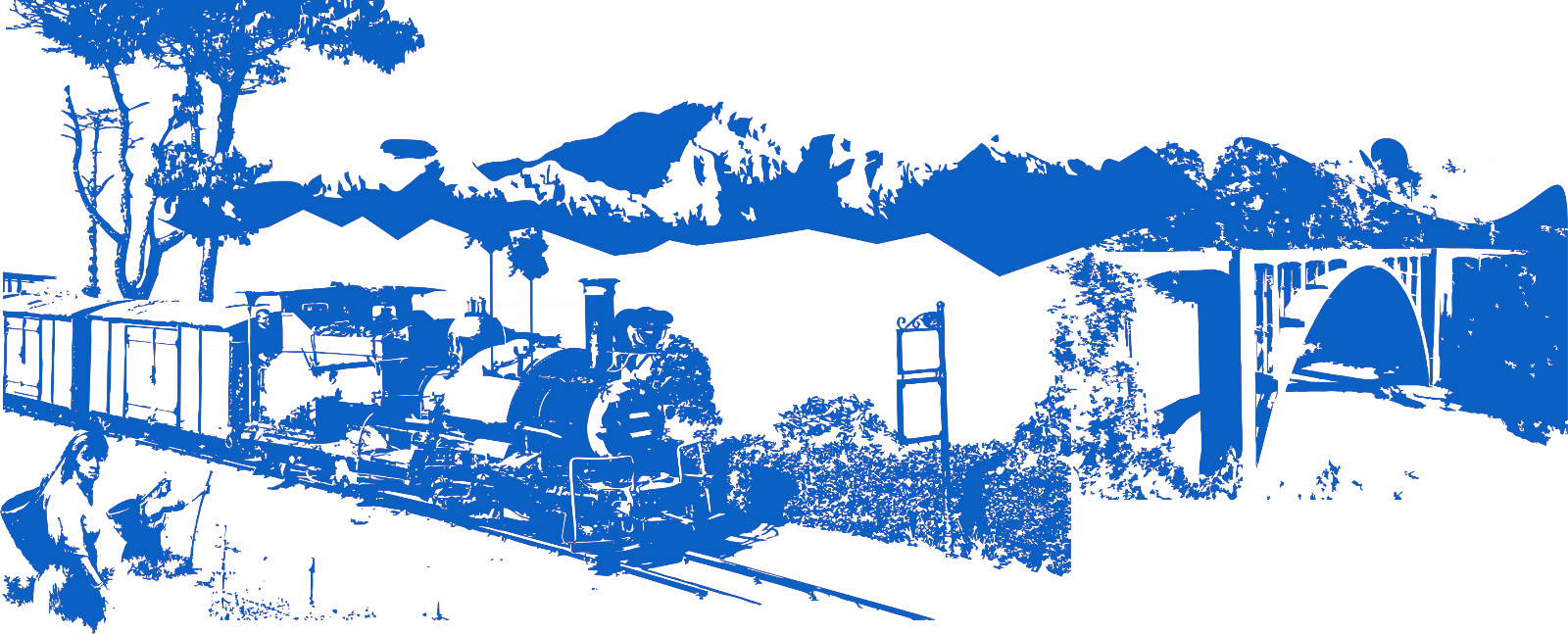Commercial Opportunities
Tender > Commercial Opportunities
Projects will be set up in Siliguri, will be also eligible for Sales Tax concession like deferred payment of Sales Tax for 15 years subject to 175% ceiling in terms of Gross value of Fixed Capital Assets of the Project or alternatively, remission of Sales Tax for 13 years subject to 150% ceiling in terms of Gross value of Fixed Capital Assets of the Project.
Well developed Health and Medicare facilities are available, including North Bengal Medical College, Sub divisional Hospital and many private clinics, nursing homes and hospitals in Siliguri. There are many tourists' spots for outing within tow hour's journey. There are plenty number of Hotels and restaurants for ever increasing tourists, businessmen, and traders.
- Skill Based : The district traditionally possesses highly skilled labour who are adept in making various handicraft items, like Carpet, Woolen garments, Jackets, Handloom products, Cane and Bamboo craft, Ornaments, Embroidery work, jute work etc. These industries do a brisk business during the tourist season and their market can be easily expanded, if suitable advertisements and other sales promotion measures with ensured buyback and export arrangements are undertaken in an organized manner.
-
Resource Based :
Agriculture and Forestry are the most prospective Sectors in the economy of Darjeeling. Extensive growth of pineapple, orange and other fruits in this district has made the area ideal for establishment of food processing units. A Ginger Oleo—resin Plant and Cardamom Oil Unit would also be a profitable venture. Tea and Timber occupy an important position on economy.
Tea is the oldest and most established industry in Darjeeling. Tea is famous all over the world for its high quality and flavour. It has tremendous export potential. Instant tea is the new product fast emerging in this industry which has tremendous future promise. There is also a trend on the part of the small farmers to bring their land under tea cultivation and sell the tea leaves to the manufacturing units. 12 such new tea gardens up to the area of 20 acres in the process of getting registered in the district. Ancillary industries of tea cultivation for manufacturing such items as tea garden tools and tea-chest plywood may also be established. Timber resource may be used for wood furniture, plywood veneer, sawmill, blackboard, dense jute and wood particleboard etc. Large quantities of bamboo and cane is available in the forests of Darjeeling district which affords an invaluable opportunity for the development of art and craft based on them which have tremendous market in view of huge and rapidly increasing tourist traffic.
Floriculture, horticulture and agro-processing have vast untapped potential. Pineapple, oranges and tomato etc. are produced in sufficiently large quantities justifying setting up of integrated plant for their processing to produce squash, marmalade, sauce, vinegar, juice etc. Various other industries using by –products/ wastes can also be setup e.g. cloth-weaving from pineapple fibre. These industries are not only eco-friendly but also generate substantial employment both in agricultural and industrial sector.
A number of industries based on medicinal plants may come up for producing products like emetine, reserpine, copolanine, staramonium, becognin, ephedrine and camphor oil.Herbal medicines may be produced on large scale in joint sector using the medicinal plants in association with cinchona plantation authorities Huge animal resources may also be exploited for projects like cattle feed and poultry feed, cattle licks, milk sachet, processing of hides and skin etc.
Specific attention should also be given to possibility of starting of rubber plantation on a large-scale as weather is ideally suited for this activity. It is a highly remunerative industry and generates a lot of employment. Setting up of a rubber unit will also encourage small farmers in its surrounding areas to grow rubber trees as they will find ready market for their produce. Sericulture is another area of activity, which can yield heavy benefits both to the entrepreneurs and the farmers. - Demand Based : The district of Darjeeling especially its Siliguri Belt, being a focal point in the geo-economic structure of North Bengal also enjoys ideal advantages as regards the setting up of an array of consumer goods industry. Potentialities may be noted for a number of food items like bakery products, confectionery items, biscuits, Sport goods, agarbatti, distilled water, washing soaps, chalk pencils, digital clock and chlorine tablets etc. would enjoy ready markets in North Bengal. These apart, other consumer items like stainless utensils, leather shoes, ready-made garments, tin containers for packing, plastic articles, nuts and bolts, kitchen wares, glass articles and electrical accessories all have tremendous market prospects in the region. Special attention needs to be given to thetourism and tourism based industries like fast-food joints, water sports, ropeways, rock climbing etc. in cooperation with Darjeeling Gorkha Hill Council and Forest Department.
- Food Processing : Darjeeling district alone produces approximately 90,000 tonnes of Pineapple, 20,000 tonnes of Oranges, 80,000 tonnes of Tomato per annum. Besides as much as 6,00,000 nos. of Oranges per day are available in peak season from Sikkim. These huge resources of raw fruits justifies setting up of an integrated plant for producing various items like Orange Squash, Orange Marmalade, Tomato Sauce, Vinegar, Juice, Pineapple rings, Frozen fruits etc.
- Floriculture : Existing production of 60 MT of flowers in Darjeeling district and 20 MT available from Sikkim can easily be exploited. Besides flower cymbidiums, cypripedium and other orchards, cactuses, bulbs, gladiolie etc., which are in huge demand, are available in abundance. Tissue culture also has tremendous prospects.
-
Pharmaceuticals :
Darjeeling has the potential to come up as one of the most promising area for production of phytochemical and pharmaceutical products. Apart from the present exploitation of Chnchona bank for quinine and ipecac root for emetine, the following items have been identified:
Raserpin from Rauvolfia, Contraceptive pills and hormones from Dioscorea. Cardia glycosides from Digitalis, Alkalloids from Ergot, Atropine and Scopolamine from Daturas, Lemongrass oil, Palmarosa oil , Khas Khas Oil, Citronella Oil , Vinca Rosia.
The West Bengal Photochemical and Pharmaceutical Development Corporation has already been running one profit making unit in Toralpara in Jalpaiguri. The Forest Department of West Bengal has been producing 50,000 litres of Citronella oil per annum in Sukna Distillation Plant. The medicinal plants do not need big plots of land for their cultivation. They can well grow in forest, tea gardens and in other farming lands. Ginger products manufacturing, extraction of papein from papaya are other very lucrative possibilities. Darjeeling produces nearly 4,000 tonnes of ginger per annum most of which is sent out side the district without any processing. - Wood based industries : Large forest cover with abundant supply of wood, bamboo, cane etc. provides excellent opportunity for setting up of industries for manufacture of plywood, veneer, particle board from wood dust, wooden furniture, wood charcoal, cane furniture etc.
- Sericulture : Climate of Darjeeling district id ideally suited for mulberry cultivation, which does not require larger pieces of land. Further processing of cocoons at local level will ensure high value addition thereby increasing its acceptability amongst small farmers.
- Rubber Plantation : Darjeeling district also has ideal conditions for rubber plantation. Setting up of a rubber unit having its own rubber plantation will also encourage the small farmers of surrounding area to take up this activity and sell the rubber milk to the rubber unit.
-
Mining :
A proven reserve of lead zince deposit of 3.256 million tonne with averager metal content of 8% upto a depth of 250 mtrs. In Goroubathan may be commercially exploited after a feasibility study in this regard.
Natural caffeine is produced from tea wastes, which can be encouraged for commercial exploitation.
Animal resource based industries» Huge cattle population in Darjeeling provides and opportunity for a systematic approach for collection and processing of milk. Hides and skins, which are easily available, can be used to promote leather industry. Handicrafts based leather products exploiting traditional expertise have ready market due to tourist traffic large urban population also provides in opportunity for promotion of other animal resource based activities like poultry, dickery, piggery, and goatery.
Dust free and cool regions of Darjeeling could be utilized for promotion of Electronic and Software industry. Some tea industry based Electronic appliances identified by West Bengal Electronic Industry Development Corporation are, namely, Digital Thermometer, Electronic Pressure Gauge, Electronic Hygrometer, Sequential Timber, Electronic Thermometer, Automatic Temperature Controlling system, Multiple Peripheral Controller, Moisture Meter, Automatic Weighing system, Electronic Colour sawing system, Electronic Image Processing system.
The Concept of DTP (Desk Top Publishing) which has revolutionized the printing technology the world over, has opened a whole new world of innovative designing and publishing for the people engaged in printing, writing, designing, visualizing, advertising, commercial art etc. The burgeoning urban population in Siliguri, Kurseong, Kalimpong and Darjeeling is expected to make increasing demand on such sophisticated electronic media of printing.
TV Set Assembling TV Antenna Manufacturing has already seen quite a considerable number of profit making industrial enterprises in and around Siliguri. Similar enterprises could be set up in Darjeeling, K Bio-fertilizer units have tremendous potential in view of adverse effects of chemical fertilizers on the quality fo tea in particular and other agricultural produce in general. There is also a possibility for processing the urban waste into organic manure which shall find ready market in the tea and other plantations. Siliguri Municipal Corporation area alone produces about 200 MT of garbage daily.
Household consumables and consumer durables both can be produced at Siliguri in view of large distribution network which can be used for marketing of these products in eastern India.
As a result of growth of small and medium industry around Siliguri there is a possibility of setting up of units for manufacturing of industrial spares, consumables, lubricants, automobile spares and other such articles of replaceable nature.
Big size highway hotels, catering to corporate conference and seminars are required for attracting business travel.
The existing and proposed hotels and extend their services to the local clientele and weekend tourists through swimming pools, Golf courses, family resorts, hut clusters etc.
Organisation of craft meals, local folk cultural meets, flower shows, Himalayan Car Rally etc. at a fixed time in the year preferably in March, April and May by the resorts themselves would attract visitors from all over the country.
Conversion of depressions, marshy land etc. into shallow waters for attracting migratory birds and construction of small resorts and catering facilities around these sites will attract local parties, wedding, school children and weekend tourists.



